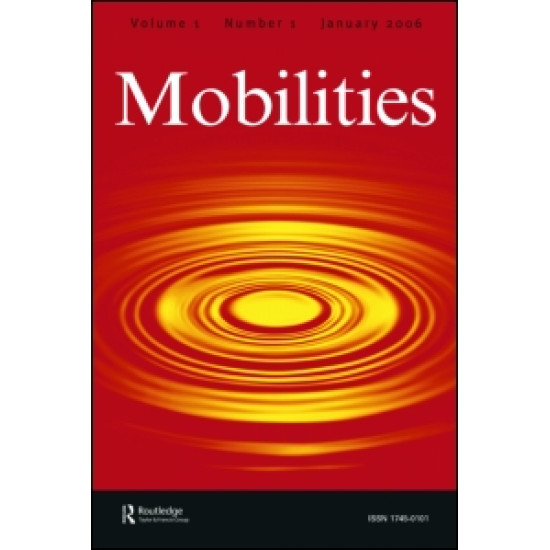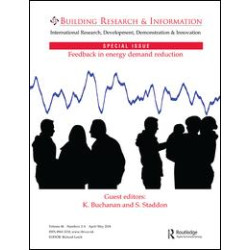
Free
Mobilities
Co-founded by John Urry, Mimi Sheller and Kevin Hannam in 2006 Mobilities has grown and developed to producing six issues a year. Mobilities was accepted by the SSCI in 2010 and stands as a testament to John Urry's pioneering work and leadership in the 'new mobilities paradigm' in social science research. Following John Urry's death in 2016 the Editors welcomed David Tyfield of Lancaster Environment Centre at Lancaster University as co-Editor.
A statement from Lancaster University paying tribute to John Urry can be found here: http://wp.lancs.ac.uk/john-urry/
Mobilities examines the large-scale movements of people, objects, capital, and information across the world, as well as more local processes of daily transportation, movement through public and private space and the travel of material objects in everyday life. New transportation and digital infrastructures and novel social and cultural practices pose important challenges for coordinating and governing mobilities and for mobility rights and questions of ‘access’. These ‘mobility’ issues have generated new research methods and theories. Mobilities publishes original, theoretically-informed research which is international in scope. The journal addresses major topical issues and fosters scholarly debate around the ‘mobility’ turn.
A statement from Lancaster University paying tribute to John Urry can be found here: http://wp.lancs.ac.uk/john-urry/
Mobilities examines the large-scale movements of people, objects, capital, and information across the world, as well as more local processes of daily transportation, movement through public and private space and the travel of material objects in everyday life. New transportation and digital infrastructures and novel social and cultural practices pose important challenges for coordinating and governing mobilities and for mobility rights and questions of ‘access’. These ‘mobility’ issues have generated new research methods and theories. Mobilities publishes original, theoretically-informed research which is international in scope. The journal addresses major topical issues and fosters scholarly debate around the ‘mobility’ turn.
Papers in the following areas would be considered for publication in Mobilities:
- Mobile spatiality and temporality
- Sustainable and alternative mobilities
- Mobile rights and risks
- New social networks and mobile media
- Immobilities and social exclusions
- Tourism and travel mobilities
- Migration and diasporas framed in terms of wider mobilities theory
- Transportation and digital technologies
- Transitions in complex systems
- Climate change and transportation energy
Peer Review Statement
All submissions undergo rigorous peer review, based on initial editor screening and anonymized refereeing by up to three referees. The decisions of the editors are final.
Notes for Contributors
Manuscripts should be between 8,000 and 10,000 words, and should be sent electronically to: mobilities@lancaster.ac.uk (Chicago Author-Date layout).
₹0.00






